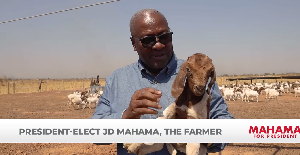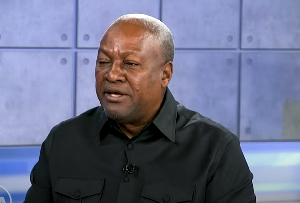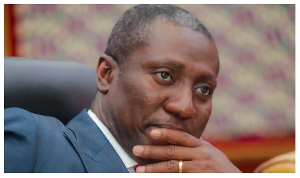Newmont Ghana Limited, the world?s largest mining company says it did not unilaterally decide on the state of buildings constructed to resettle people affected by its operations. Rather it relied on the views and guidance of a consultative and collaborative process, which involved the Environmental Protection Agency (EPA), chiefs and representatives of people in the areas.Also included in the process were the Land Evaluation Board, officials of District and Regional Town and Country Planning Agency and Newmont itself.
The decision to involve the above stakeholders, the mining giant explained was to ensure that its resettlement and relocation policy for the areas effected by its operations were not ad hoc but based on the requirements of the National Building Code and the expectations of the affected persons.
Many mining companies operating in Ghana have in one way or the other been accused of exhibiting inhumane tendencies in the areas they operate. The accusations range from the constant spillage of a dangerous mining chemical, Cyanide into rivers and streams that are used for purposes including drinking and washing, the destructions of farmlands and deforestation among others.
In the case of Newmont Ghana, which started its operations in February last year and has about 750 million United States dollars capital investment in the country, was recently accused of reneging on pledges it made to the people of Kenyasi in the Brong Ahafo Region.
Among the accusations levelled against the company are delays in the payment of compensation and construction of houses meant for the resettlement of the people, which look more like kitchens than rooms to accommodate the people.
But Newmont?s Communications Manager Mawuena Dumor in an interview with Network Herald said the company recognizes the need to earn and strengthen the support of the people within the communities it operates in and for this reason the state of buildings at Ntotroso were based on guidelines provided it by the Resettlement and Relocation Committee which included the chiefs and people of the area in the context of the building regulations of the country.
She said even though the company is still in the preparatory stage therefore yet to produce an ounce of gold from its two projects in the Brong Ahafo and the Eastern Regions of Ghana, the first and only African country it is operating in at the moment, it has already pumped over Five Hundred thousand dollars to upgrade the living standards of the people in the areas of health, water, sanitation and education.
She told the paper that since the company would not want to be seen engaged in social infrastructure development without the consent and inputs of the people, it engaged the services of an independent organization, OICI International to conduct studies in places such as Kenyasi No. 1and 2, Jebu, Tanoso, Ntotroso, Yampo and other operational areas to know the psyche of the people to better understand their socio-economic requirements so they could be addressed accordingly.
Newmont, she said believes in a consultative process to address all the problems confronting the people in its operational areas and will do everything within its power to maintain and respective the outcome of the process.
On the payment of compensation to the people, the Ms Dumor denied there was a delay in paying affected farmers. She said the company is employing the consultative process to assess the farm sizes, their value, and the nature of crops in the farm so as not to pay any amount below the expectation of the affected farmers.
She was emphatic, Newmont has not broken any of its promises particularly on the payment of compensation but only adhering to a detailed transparent documentation process based on the consultative process which involves chief farmers, individual farmers as well as appointee of Newmont to offer the farmers what their farms are worth upon a mutually agreed and signed documentation.
So far 3,000 people have been paid nine million dollars in the two project areas and it intends to do more for them when it begins producing gold from the areas based on an open door policy.
Ms. Dumor said the company is happy with the feedback from the people and will work with the Resettlement and Relocation Committee to address the concerns raised about the houses because it was not its intention to put up such structures. She gave the assurance that efforts would however be made to correct the defaults to suit the people.
Click to view details



Business News of Sunday, 12 December 2004
Source: Larry-Alans Dogbey(Network Herald)
















